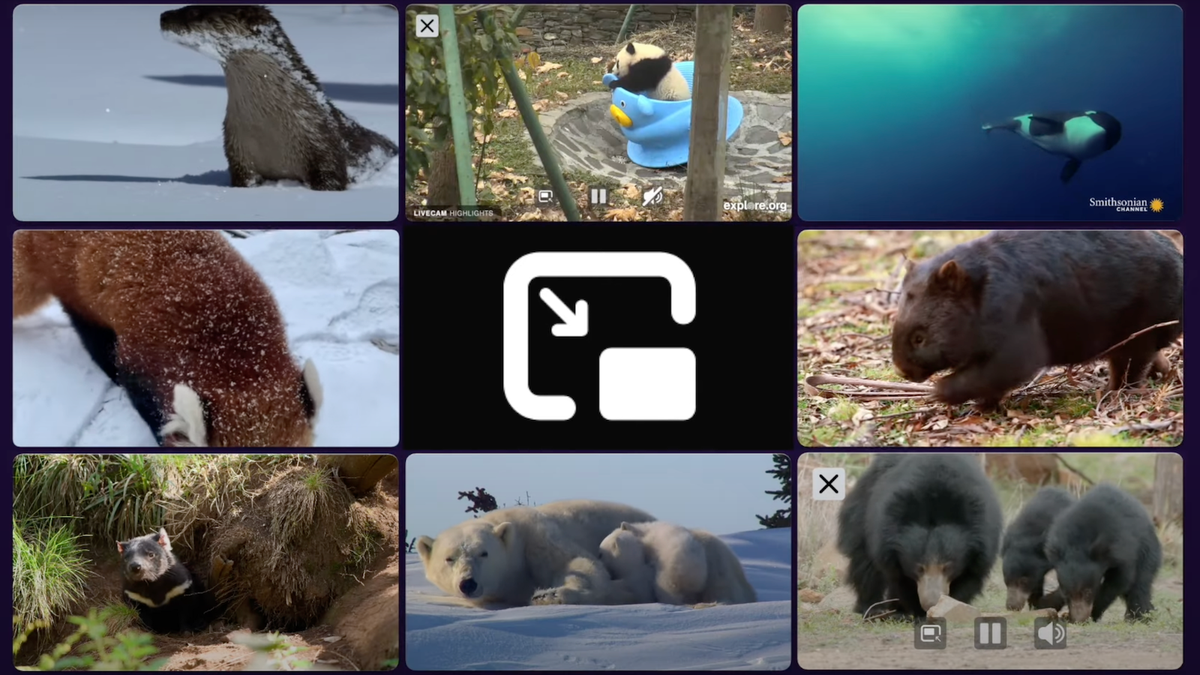An Age-by-Age Guide to Why Kids Lie (and What to Do About It)
Everyone lies sometimes. Toddlers, kindergarteners, fourth graders, tweens, teens, and yes, even us—the mature, sage adults. We’ve all sugarcoated the truth at one time or another to spare someone’s feelings, get out of an onerous task, or save face...


Illustration: Ben Currie
Everyone lies sometimes. Toddlers, kindergarteners, fourth graders, tweens, teens, and yes, even us—the mature, sage adults. We’ve all sugarcoated the truth at one time or another to spare someone’s feelings, get out of an onerous task, or save face while bailing on previously laid social plans.
While no one wants their child to lie, it helps to know it’s a normal part of development. As reported by NPR, “In early childhood, lying reflects an important milestone in cognitive development.” Children are not capable of lying until they understand that people have different beliefs and levels of knowledge than they do. Look at it this way: Trying to instill a false belief to serve their own goal is a complicated cognitive process and accomplishment. Bravo?
Of course, as parents, our goal is to teach the value and importance of honesty. But it can be jarring when our innocent babes begin to tell whoppers, and we may not know the best way to handle it. Here, we break down the primary reasons why kids lie (at various ages)—and what to do about it.
2 / 14
Why toddlers lie (ages 2-3)
Why toddlers lie (ages 2-3)

Photo: Rawpixel.com (Shutterstock)
Toddlers lie for a number of reasons, none of them malicious. Child psychiatrist and author Elizabeth Berger points out that kids of this age don’t have a firm grasp on the difference between “reality, daydream, wishes, fantasies, and fears.” They may be too young to know lying is wrong, simply blurring the line between pretend play and reality, trying to avoid trouble, or angling to get something they want.
Sometimes, they lie just to express something they wish were true. “Strong emotions can make a 2- or 3-year-old insist, ‘He ate my cookie!’ when a baby brother clearly did not do anything of the kind,” Berger tells Parents.com.
3 / 14
What parents can do about toddler lying
What parents can do about toddler lying

Photo: fizkes (Shutterstock)
Because toddlers are too young to punish and even to understand why something is wrong (not to mention legendary at creating power struggles when confronted), keep your response mild. If they do something obvious like lie about having a snack they weren’t supposed to, you can let them know you have an expectation of truthfulness without firmly enforcing it by saying, “Hmm, I wonder how that chocolate got on your shirt, then.”
Pregnancy Birth & Baby also suggests:
Complimenting their imagination and story-telling. “Over time, this helps them to tell the difference between fantasy and reality.”Helping them identify underlying feelings beneath the lie with statements like, “It sounds like you wish your brother would play with you.”Help them avoid “trouble” by stating, “Your books are on the floor. Put them back, please.” This is more effective than asking a question that invites them to lie: “Did you take all your books off the shelf?”Any lectures about the importance of telling the truth will fall on deaf ears. There’s plenty of time for that as they get older.
4 / 14
Why preschoolers lie (ages 4-5)
Why preschoolers lie (ages 4-5)

Photo: Robert Kneschke (Shutterstock)
As children become more verbal—and more adept at reading situations that might lead to them being punished—their lies may become more frequent. They may lie because they wish they hadn’t done the thing you are now mad about, or because their imagination is in overdrive. (“There was a monkey at school today!”)
When we asked Kimball Lewis, CEO of Empowering Parents for advice on handling the issue of childhood lying, he told us, “Don’t treat lying as a moral issue—treat it as a behavior problem. When your child lies to you, it’s natural to feel betrayed and angry. But here’s the truth: Lying is a normal child behavior problem. It needs to be addressed, but for most kids, it’s not a character flaw, and it’s not an issue of morality. Rather, it’s an immature and ineffective way that your child uses to solve a problem.” Viewing it in this light enables parents to better address the issue in a calm and constructive manner.
5 / 14
What parents can do about preschooler lying
What parents can do about preschooler lying

Photo: George Rudy (Shutterstock)
To curtail the behavior, always emphasize the importance of honesty, model truthfulness yourself, and help your child understand the consequences of lying. Address the lying soon after it occurs, so the memory will be fresh—but be sure you and your child are both in a calm state before discussing.
At this young age, it’s still advisable to challenge untruths in a lighthearted way. You may say, “No way a monkey—at school? How did he get in there?” or play along in a way that gently requires them to justify what happened. “Your polar bear threw this food on the floor? I wonder why he did that.” Often, they may surprise you by owning up to the falsehood.
6 / 14
Why early elementary school kids lie (ages 6-8)
Why early elementary school kids lie (ages 6-8)

Photo: Monkey Business Images (Shutterstock)
When kids are in early elementary school, they may tell lies to test the boundaries of what they can get away with—and because, according to Berger, “The regulations and responsibilities of this age are often too much for children. As a result, they will often lie to appease the forces that seem to demand more performance than they can muster.”
Parents can expect to see lies crop up around school, homework, teachers, even friends. Though children are getting better at covering up lies, they are still relatively easy to spot—and correct. A falsehood about not having any math homework can often quickly be checked with a look at a weekly homework sheet, or a glimpse inside your child’s backpack.
7 / 14
What parents can do about early elementary school lying
What parents can do about early elementary school lying

Photo: LightField Studios (Shutterstock)
At this age, continue to talk openly about the importance of honesty, and avoid cornering your child into a situation where they need to lie with questions you already know the answer to. (“Did you clean up your room?”) Let them know you won’t be angry as long as they tell the truth—and follow through on that promise. Encourage them to put themselves in another’s shoes by asking, “How would you feel if your best friend lied to you?” Notice and praise your child when they’re being honest, especially when that honesty may not benefit them.
At this age, your response to lying may become more direct. Victoria Talwar, Ph.D., associate professor in the Department of Educational and Counseling Psychology at McGill University told Parents: “In response to a lie, be firm and serious and say, ‘That sounds like you’re not telling the truth’ or ‘Are you absolutely sure that’s what happened?’ Make it clear that you are not taken in by the lies, but move on gracefully after listening to and gently correcting your child. Avoid confronting the child further or digging for the truth unless the situation is serious and demands more attention.”
8 / 14
Why early tweens lie (ages 9-10)
Why early tweens lie (ages 9-10)

Photo: Alena Ozerova (Shutterstock)
When a child reaches the cusp of tweenhood, that transitional age when they are no longer little kids but still not adolescents, their reasons for lying begin to change. As psychologist Dr. Jeffery Bernstein writes for Psychology Today, “Preteens and teens can lie to try to avoid getting in trouble, defend a friend they like, or lie because they are too upset to talk about painful experiences, like rejection from peers. The best you can do as a parent,” Bernstein continues, “is keep yourself from overreacting to your child’s lies. If you overreact, then you are just building a bigger barrier between you and your child feeling safe to open up to you.”
9 / 14
What parents can do about early tween lying
What parents can do about early tween lying

Photo: Alena Ozerova (Shutterstock)
During the tween years, experts counsel parents to resist the urge to take it personally (which includes the all-important edict, as difficult as it is, to stay calm). Assure your child you won’t be upset or punish them for whatever they say, and stick to it. Commit to remaining impartial, trying to uncover the deeper emotions or fears that drove them to lie in the first place—without shame or judgment.
Empowering Parents says to, “Focus on the underlying behavior, not the lie. Kids usually lie so that they don’t get in trouble for doing something wrong (or for failing to meet a responsibility).” Don’t ignore the lying, but focus the majority of your energy on understanding and interrupting the behavior that led to it. At this age, you can also explain the difference between lies that are always wrong versus occasional “little white lies” to spare someone’s feelings.
Anytime a child fesses up to lying or doing something wrong, heap on the praise and positive feedback. “Thank you so much for being honest with me. Now we can work together to sort this out.”
10 / 14
Why tweens lie (ages 11-12)
Why tweens lie (ages 11-12)

Photo: myboys.me (Shutterstock)
In full blown tweenhood, the rush of physical and emotional changes makes tweens feel more vulnerable than they ever have before. They may lie to fit in, to create an external appearance of self-assurance through growing feelings of insecurity, to feel special and less awkward. They may defy a parent’s rules and lie about it in response to social pressure to look or dress a certain way, or to engage in certain activities that make them look “cool.”
Or, they may lie simply because they’re in a transitional developmental phase of pushing away from their parents in a quest for independence, while still pulling towards them for connection and guidance. They may lie “because they can”—and to affirm their own sense of personal autonomy and authority. Oh, and of course—to avoid (or delay) consequences—that old chestnut.
11 / 14
What parents can do about tween lying
What parents can do about tween lying

Photo: fizkes (Shutterstock)
Bernstein’s suggestion is to reframe our approach as parents, “to think of yourself as an ‘emotion coach’ versus over-the-top disciplinarian out to show who is boss.” This includes talking to them about how telling the truth can feel scary, and how lies give the illusion of solving problems, but end up creating more stress down the road. And remind them, above all, to see their inherent value, that they don’t need to exaggerate reality to convey how special they are to others.
12 / 14
Why teenagers lie (ages 13-17)
Why teenagers lie (ages 13-17)

Photo: Phovoir (Shutterstock)
One study of lying published in Science Direct found that teenagers lie more than any other age group. (Other studies have concluded the same.) Dr. Nancy Darling, chair of the psychology department at Oberlin College, who has researched teen lying for more than 20 years, has identified three main categories of teen lying: lying by avoidance (of topics they don’t want to discuss), lying by omission (i.e., leaving out key information), and lying by commission (telling an intentional, flagrant lie).
Some of the most common reasons teens lie are: to get out of trouble, do things they’re not allowed to do, maintain privacy, establish independence, or because they think their parents’ rules are unfair. They often lie about spending money, who they’re hanging out with, what they’re doing, whether it’s being supervised by an adult, getting involved in romantic relationships, and drinking or substance use.
At this stage, Bernstein writes, it becomes increasingly important to “be cognizant of the difference between lies that cover up for risky behaviors including drug use as opposed to smaller, everyday lies.” Lying about unsafe or illegal behavior must be addressed directly.
13 / 14
What parents can do about teenage lying
What parents can do about teenage lying

Photo: Motortion Films (Shutterstock)
This 2017 longitudinal study of adolescent honesty found that warm, trusting child-parent relationships (specifically maternal relationships) were associated with decreased teen lying (and alcohol consumption). Their data highlighted the “advantages of cohesive as opposed to over-restrictive parenting.” In layman’s terms, teens are more honest with their parents when they perceive them as loving and supportive; and more likely to lie when they feel overly controlled and monitored.
One of the best things a parent can do with teenagers is foster an environment of open, nonjudgmental communication. When teens aren’t afraid of being harshly punished, they are more likely to tell the truth. This doesn’t mean “no rules.” It means clear boundaries enforced with reasonable consequences. (A lie about someone’s parents being home gets a weekend of staying in, for example, not a month of being grounded and a Sweet 16 birthday party cancellation).
Kimball Lewis of EmpoweringParents suggests giving separate consequences for the behavior and the lying. “If your child comes home late for curfew and then lies about why they were late, give two separate consequences: one for missing curfew and another for lying about it. That way, the next time your child misses curfew they have the option to be honest and receive one consequence or lie and get two consequences.”
And don’t be afraid to tell your teen about a time you made a mistake, or did something wrong, and how you told the truth to remedy the situation. “I made a mistake on a report today. I was worried about it, but told my boss right away instead of waiting for her to discover it.” Seeing you model proactive honesty will encourage them to do it themselves.

 Astrong
Astrong 





























